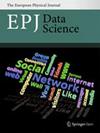噪音会影响房价吗?以塞萨洛尼基市区为例
IF 2.5
2区 计算机科学
Q1 MATHEMATICS, INTERDISCIPLINARY APPLICATIONS
引用次数: 0
摘要
房地产市场依赖于各种方法来预测房价,包括在住宅或商业物业数据集上训练的模型。大多数研究都试图通过利用基本财产特征以及城市特征(如与便利设施的距离和道路可达性)等数据来创建更准确的机器学习模型。尽管噪音污染等环境因素可能会影响价格,但围绕这一主题的研究是有限的。其中一个原因是缺乏数据。在本文中,我们基于希腊环境和能源部对希腊塞萨洛尼基市进行的已发表研究,重建并公开了通用噪声污染数据集。然后,我们在塞萨洛尼基不同地区的房地产数据上训练集成机器学习模型,如XGBoost,通过可解释性评估技术来研究噪音影响价格的方式。我们的研究提供了一个新的噪声污染数据集,不仅证明了噪声对房价的影响,而且表明噪声对同一城市不同区域价格的影响存在显著差异。本文章由计算机程序翻译,如有差异,请以英文原文为准。

Does noise affect housing prices? A case study in the urban area of Thessaloniki
Abstract Real estate markets depend on various methods to predict housing prices, including models that have been trained on datasets of residential or commercial properties. Most studies endeavor to create more accurate machine learning models by utilizing data such as basic property characteristics as well as urban features like distances from amenities and road accessibility. Even though environmental factors like noise pollution can potentially affect prices, the research around this topic is limited. One of the reasons is the lack of data. In this paper, we reconstruct and make publicly available a general purpose noise pollution dataset based on published studies conducted by the Hellenic Ministry of Environment and Energy for the city of Thessaloniki, Greece. Then, we train ensemble machine learning models, like XGBoost, on property data for different areas of Thessaloniki to investigate the way noise influences prices through interpretability evaluation techniques. Our study provides a new noise pollution dataset that not only demonstrates the impact noise has on housing prices, but also indicates that the influence of noise on prices significantly varies among different areas of the same city.
求助全文
通过发布文献求助,成功后即可免费获取论文全文。
去求助
来源期刊

EPJ Data Science
MATHEMATICS, INTERDISCIPLINARY APPLICATIONS -
CiteScore
6.10
自引率
5.60%
发文量
53
审稿时长
13 weeks
期刊介绍:
EPJ Data Science covers a broad range of research areas and applications and particularly encourages contributions from techno-socio-economic systems, where it comprises those research lines that now regard the digital “tracks” of human beings as first-order objects for scientific investigation. Topics include, but are not limited to, human behavior, social interaction (including animal societies), economic and financial systems, management and business networks, socio-technical infrastructure, health and environmental systems, the science of science, as well as general risk and crisis scenario forecasting up to and including policy advice.
 求助内容:
求助内容: 应助结果提醒方式:
应助结果提醒方式:


